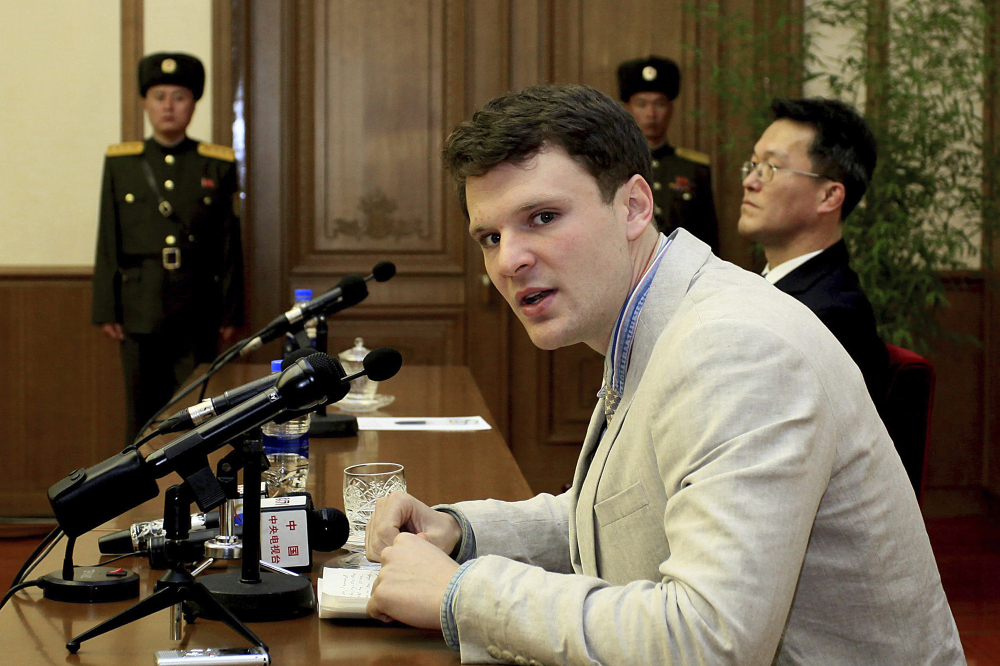CINCINNATI — Otto Warmbier, who was medically evacuated from a 17-month detainment in North Korea this week, has extensive loss of brain tissue and is in a state of unresponsive wakefulness, UC Health doctors said Thursday afternoon.
Doctors said they don’t know what caused the brain damage. When asked whether it could be the result of beating or other violence while in prison, they said that Warmbier did not show any obvious indications of trauma, nor evidence of either acute or healing fractures.
Rather, Daniel Kanter, medical director of the neuroscience intensive care unit at UC Medical Center said, the pattern of brain injury they see on magnetic resonance imaging (MRI) results appeared consistent with a cardiopulmonary arrest, with damage to brain tissue caused by lack of blood flow to the brain.
The doctors are not aware of anything from his previous medical history, prior to his time in North Korea, that might cause cardiopulmonary arrest. One of the more common causes of cardiopulmonary arrest is respiratory arrest, said Jordan Bonomo, neurointensivist at UC Gardner Neuroscience Institute. Such cessation of breathing could be triggered by several things, including intoxication or a traumatic injury.
It is possible to have respiratory arrest caused by an overdose of medication, intentional or otherwise, he said.
Warmbier’s condition, its possible causes, and his treatment while detained in North Korea are of intense interest in a case that threatens to worsen already fraught relations between the United States and North Korea. President Trump called Warmbier’s parents Wednesday night to tell them his administration had worked hard to secure their son’s release, and to ask how he was doing.
Warmbier arrived at the University of Cincinnati Medical Center Tuesday night.
He went to North Korea as a tourist in December 2015. In a sham trial, he was convicted of “hostile acts against the state” and sentenced to 15 years of hard labor.
Send questions/comments to the editors.



Success. Please wait for the page to reload. If the page does not reload within 5 seconds, please refresh the page.
Enter your email and password to access comments.
Hi, to comment on stories you must . This profile is in addition to your subscription and website login.
Already have a commenting profile? .
Invalid username/password.
Please check your email to confirm and complete your registration.
Only subscribers are eligible to post comments. Please subscribe or login first for digital access. Here’s why.
Use the form below to reset your password. When you've submitted your account email, we will send an email with a reset code.